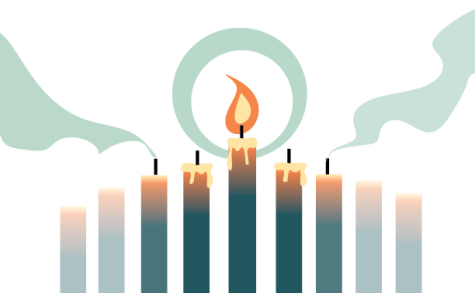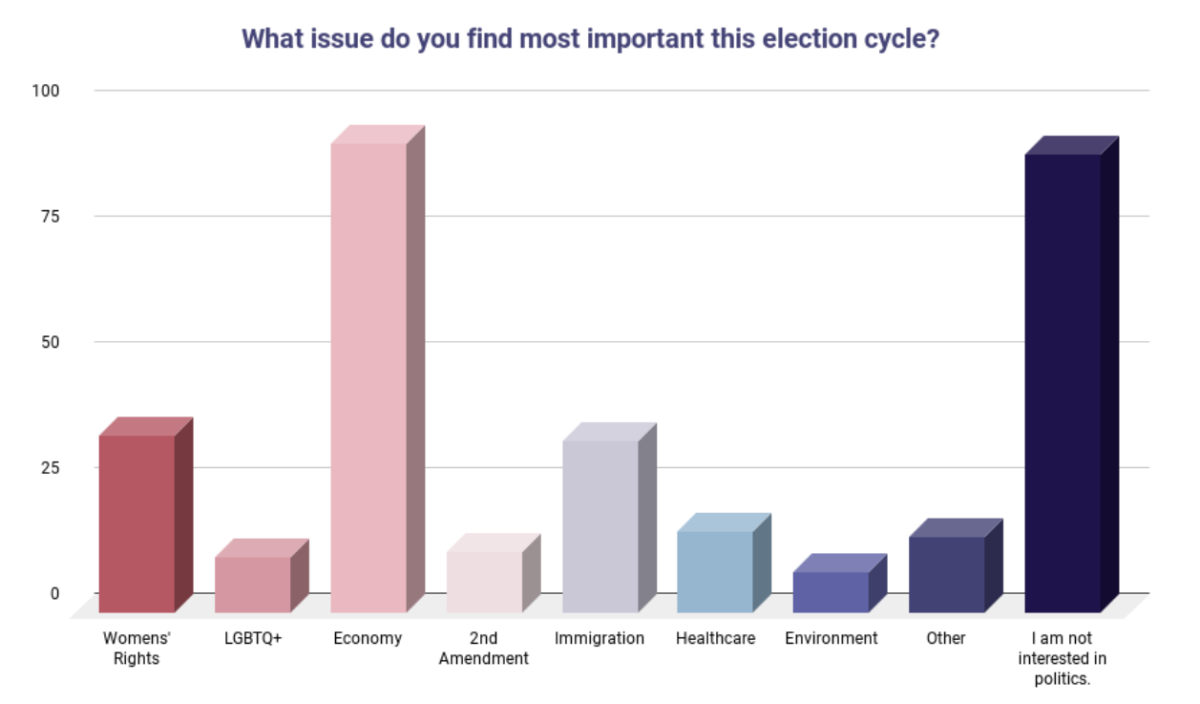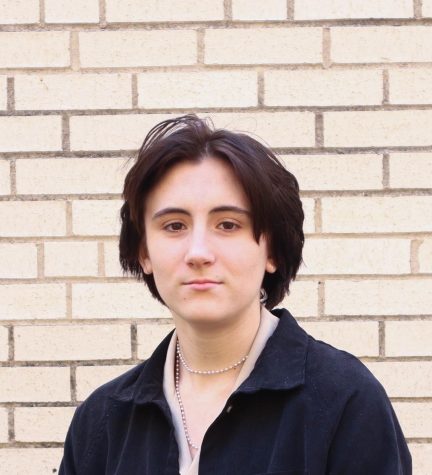A festive buzz surrounds senior Tiana Mazisyuk, who uses they/them pronouns. Students are anticipating plans for the upcoming winter break. Whispers of putting up Christmas lights, hanging mistletoe and opening colorfully wrapped presents on Christmas morning seem to get louder and louder to Mazisyuk, who looks forward to something different during the days away from school.
There won’t be a Christmas tree or a plate of cookies and milk left for Santa. Instead, the memories of the first night of Hanukkah eating latkes and jelly doughnuts and playing games of dreidel come to mind. The soft candlelight of the menorah would signal to Mazisyuk and their brother it was time for a hectic search to find presents their parents hid.
These traditions continue for the next eight days and nights. While Mazisyuk looks forward to this special time, they feel a sense of awkwardness at the difference between the amount of attention given to Hanukkah and Christmas, even with how close they’re celebrated.
“The majority of people are Christian or they all celebrate Christmas,” Mazisyuk said. “It’s so weird when everybody’s like, Oh, yeah, it’s Christmas break. Well, it’s winter break, actually.”
During past winter breaks at various schools, Hanukkah couldn’t be celebrated to its fullest for Mazisyuk and their family because of the cutoff. Coming back to school only to have surrounding students talk about the fun of celebrating an entire holiday hurt.
Other students had the benefit of opening presents and going gift shopping with friends while Mazisyuk was left out of these conversations entirely. The recent break, however, was a much needed change.
“This year was nice because we actually got the break for the entirety of Hanukkah,” Mazisyuk said.
Even small details, such as Jewish holidays not being events put in the school calendar reflects the stark loneliness Mazisyuk feels.
“It’s just because of the area that we live in. You’re not really going to find many Jewish people,” Mazisyuk said.
With only 1% of the Dallas Metro area identifying as Jewish, as stated by Pew Research, it isn’t surprising to Mazisyuk why everyone around them seems so similar in what they celebrate. That doesn’t stop the apparent lack of awareness that Jewish students, and their traditions, exist within the school and they should be acknowledged.

Yom Kippur, considered the most important holiday in the Jewish faith, is a day of atoning for sins over the past year by refraining from earthly pleasures such as eating, drinking, bathing, or using electronics. This was one of the holidays that Mazisyuk’s previous school in LA purposely scheduled weather days on so students could have more ease with the event.
Since moving to Texas, Yom Kippur fell on a school day meaning that everything restricted for the day was amplified. Attending school without being able to fully participate creates a tiring and stressful environment that Mazisyuk belives a simple day off could solve the conflicts that may arise.
“I don’t like missing school, so I came in on Yom Kippur and I didn’t eat at all that day,” Mazisyuk said. “And it’s hard because I usually just sleep through the whole day.”
Mazisyuk said sleeping helped ease the process of fasting because it took away from the hunger, as well as allowing them to rest for Rosh HaShana, or Jewish New Year. That day is spent thinking back over the past year or spending the day in temple.
There are certain holidays Mazisyuk doesn’t expect the school to give time off for, but single days off would create an awareness of smaller faiths at the school.
Despite feeling out of place with friends and peers, Mazisyuk continues to hope for more acceptance and awareness of other religions in school and the larger area around them. They hope people of different faiths and identities can be a part of a caring and genuine community that wants to change for the better.









